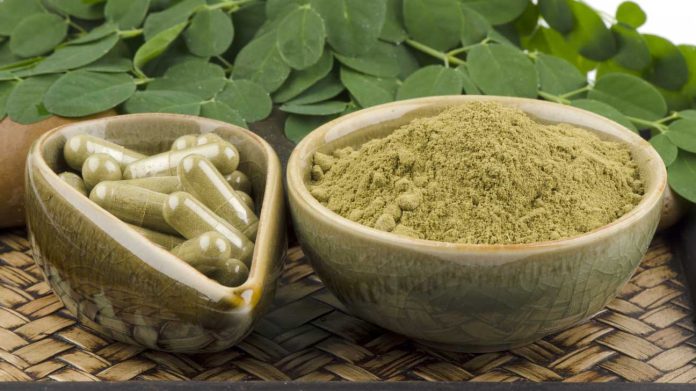Moringa, often referred to as the “miracle tree,” has gained significant attention in recent years due to its numerous health benefits and nutritional value. Native to parts of Africa and Asia, this versatile plant has been used for centuries in traditional medicine and as a food source. In this article, we will explore what moringa is, its nutritional composition, and the various health benefits it offers.
What is Moringa?
Moringa, scientifically known as Moringa oleifera, is a fast-growing, drought-resistant tree that can reach heights of up to 10 meters (32 feet). It is commonly found in tropical and subtropical regions, and almost all parts of the tree are edible, including the leaves, pods, seeds, flowers, and bark. Moringa leaves are the most commonly used part and are often consumed fresh, dried, or in powdered form. Moringa is rich in vitamins, minerals, and antioxidants, making it a popular addition to health supplements and herbal remedies.
Nutritional Composition of Moringa
Moringa is often lauded for its impressive nutrient profile. Here’s a breakdown of some of the key components:
- Vitamins: Moringa leaves are an excellent source of vitamins A, C, and E, which are vital for immune function, skin health, and overall well-being.
- Minerals: Moringa is rich in essential minerals, including calcium, potassium, iron, and magnesium. These minerals play crucial roles in bone health, blood pressure regulation, and energy production.
- Protein: Moringa leaves contain a significant amount of protein, providing all nine essential amino acids, making it a valuable plant-based protein source.
- Antioxidants: Moringa is packed with antioxidants, such as quercetin, chlorogenic acid, and beta-carotene, which help combat oxidative stress and inflammation in the body.
- Fiber: Moringa leaves are also a good source of dietary fiber, which supports digestive health and aids in maintaining a healthy weight.
Health Benefits of Moringa
1. Nutritional Support
Moringa is considered a superfood due to its high nutrient content. Incorporating moringa into your diet can help fill nutritional gaps, especially for individuals who may not have access to a varied diet. Its rich array of vitamins and minerals can contribute to overall health and vitality.
2. Antioxidant Properties
Moringa is rich in antioxidants, which are compounds that help neutralize harmful free radicals in the body. Free radicals can lead to oxidative stress, which is associated with chronic diseases such as cancer, heart disease, and neurodegenerative disorders. The antioxidants found in moringa, including quercetin and vitamin C, may help reduce inflammation and protect cells from damage.
3. Anti-Inflammatory Effects
Research suggests that moringa has potent anti-inflammatory properties. Chronic inflammation is linked to various health issues, including arthritis, diabetes, and heart disease. Moringa extracts have been shown to reduce markers of inflammation in the body, potentially helping to manage these conditions.
4. Blood Sugar Regulation
Some studies have indicated that moringa may help regulate blood sugar levels. Compounds found in moringa, such as chlorogenic acid, may help lower blood sugar levels by improving insulin sensitivity. This makes moringa a potential ally for individuals with diabetes or those at risk of developing the condition.
5. Heart Health
Moringa may promote heart health by reducing cholesterol levels and lowering blood pressure. The antioxidants and anti-inflammatory compounds in moringa can help improve overall cardiovascular function, reducing the risk of heart disease.
6. Digestive Health
The high fiber content in moringa can aid digestion by promoting regular bowel movements and preventing constipation. Additionally, moringa’s anti-inflammatory properties may help soothe digestive issues and support gut health.
7. Immune System Support
Moringa is rich in vitamins A and C, both of which play crucial roles in supporting the immune system. Regular consumption of moringa may enhance immune function and help the body fend off infections and illnesses.
8. Skin and Hair Health
The nutritional benefits of moringa extend to skin and hair health as well. Moringa oil, derived from its seeds, is often used in skincare products for its moisturizing and nourishing properties. The antioxidants in moringa can help protect the skin from oxidative damage, promoting a healthy complexion.
9. Potential Antimicrobial Effects
Some studies have shown that moringa may possess antimicrobial properties, which can help combat various bacterial, viral, and fungal infections. This makes moringa a valuable addition to natural remedies for enhancing immunity.
How to Incorporate Moringa into Your Diet
Moringa can be consumed in various forms, including:
- Moringa Powder: Dried moringa leaves are ground into a fine powder, which can be added to smoothies, soups, salads, and baked goods.
- Moringa Tea: Moringa leaves can be steeped in hot water to make a nutritious herbal tea.
- Fresh Leaves: Young moringa leaves can be eaten raw in salads or cooked like spinach.
- Moringa Capsules or Supplements: Available at health stores, these provide a concentrated source of moringa’s nutrients.
Moringa is a nutrient-dense superfood that offers numerous health benefits, from boosting immunity and reducing inflammation to supporting heart health and digestive function. With its rich array of vitamins, minerals, and antioxidants, moringa is a valuable addition to a balanced diet.
As with any supplement or health food, it’s essential to consult with a healthcare professional before incorporating moringa into your routine, especially for individuals with existing health conditions or those taking medications. By exploring the potential of this remarkable tree, you can take significant steps toward enhancing your overall health and well-being.















